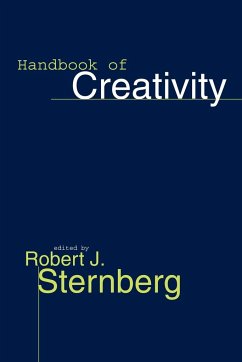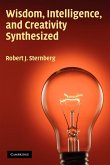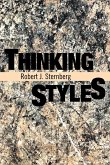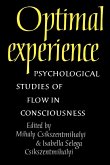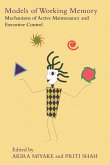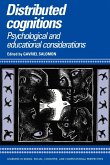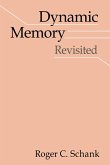- Broschiertes Buch
- Merkliste
- Auf die Merkliste
- Bewerten Bewerten
- Teilen
- Produkt teilen
- Produkterinnerung
- Produkterinnerung
Comprehensive and definitive review of the field of creativity.
Andere Kunden interessierten sich auch für
![Wisdom, Intelligence, and Creativity Synthesized Wisdom, Intelligence, and Creativity Synthesized]() Robert J. SternbergWisdom, Intelligence, and Creativity Synthesized40,99 €
Robert J. SternbergWisdom, Intelligence, and Creativity Synthesized40,99 €![Transition Expertise and Identity Transition Expertise and Identity]() Christopher ConnollyTransition Expertise and Identity142,99 €
Christopher ConnollyTransition Expertise and Identity142,99 €![Thinking Styles Thinking Styles]() Robert J. SternbergThinking Styles39,99 €
Robert J. SternbergThinking Styles39,99 €![Optimal Experience Optimal Experience]() CsikszetmihaOptimal Experience61,99 €
CsikszetmihaOptimal Experience61,99 €![Models of Working Memory Models of Working Memory]() Akira Miyake / Priti Shah (eds.)Models of Working Memory74,99 €
Akira Miyake / Priti Shah (eds.)Models of Working Memory74,99 €![Distributed Cognitions Distributed Cognitions]() Gavriel Salomon (ed.)Distributed Cognitions56,99 €
Gavriel Salomon (ed.)Distributed Cognitions56,99 €![Dynamic Memory Revisited Dynamic Memory Revisited]() Roger C. SchankDynamic Memory Revisited52,99 €
Roger C. SchankDynamic Memory Revisited52,99 €-
-
-
Comprehensive and definitive review of the field of creativity.
Hinweis: Dieser Artikel kann nur an eine deutsche Lieferadresse ausgeliefert werden.
Hinweis: Dieser Artikel kann nur an eine deutsche Lieferadresse ausgeliefert werden.
Produktdetails
- Produktdetails
- Verlag: Cambridge University Press
- Seitenzahl: 504
- Erscheinungstermin: 4. Oktober 2010
- Englisch
- Abmessung: 234mm x 156mm x 28mm
- Gewicht: 758g
- ISBN-13: 9780521576048
- ISBN-10: 0521576040
- Artikelnr.: 22410015
- Herstellerkennzeichnung
- Libri GmbH
- Europaallee 1
- 36244 Bad Hersfeld
- gpsr@libri.de
- Verlag: Cambridge University Press
- Seitenzahl: 504
- Erscheinungstermin: 4. Oktober 2010
- Englisch
- Abmessung: 234mm x 156mm x 28mm
- Gewicht: 758g
- ISBN-13: 9780521576048
- ISBN-10: 0521576040
- Artikelnr.: 22410015
- Herstellerkennzeichnung
- Libri GmbH
- Europaallee 1
- 36244 Bad Hersfeld
- gpsr@libri.de
Part I. Introduction: 1. The concept of creativity: prospects and paradigms
Robert J. Sternberg and Todd Lubart; 2. A history of research on creativity
Robert S. Albert and Mark Runco; Part II. Methods for Studying Creativity:
3. Psychometric approaches to the study of human creativity Jonathan A.
Plucker and Joseph Renzulli; 4. Experimental studies of creativity Mark
Runco and Shawn Okuda Sakamoto; 5. The case study method and evolving
systems approach for understanding unique creative people at work Howard E.
Gruber and Doris Wallace; 6. Creativity from a historiometric perspective
Dean Keith Simonton; Part III. Origins of Creativity: 7. Biological bases
of creativity Colin Martindale; 8. Evolving creative minds: stories and
mechanisms Charles J. Lumsden; 9. The development of creativity David Henry
Feldman; Part IV. Creativity, the Self and Environment: 10. Creative
cognition Thomas B. Ward, Steven M. Smith and Ronald A. Finke; 11. From
case studies to robust generalizations: an approach to the study of
creativity Emma Policastro and Howard Gardner; 12. Creativity and
knowledge: a challenge to theories Robert W. Weisberg; 13. Creativity and
intelligence Robert W. Weisberg and Linda O'Hara; 14. The influence of
personality on artistic and scientific creativity Gregory J. Feist; 15.
Motivation and creativity Mary Ann Collins and Teresa Amabile; 16.
Implications of a systems perspective for the study of creativity Mihaly
Csikszentmihalyi; Part V. Special Topics in Creativity: 17. Creativity
across cultures Todd I. Lubart; 18. Computer models of creativity Margaret
A. Boden; 19. Organizational creativity Wendy M. Williams and Lana T. Yang;
20. Enhancing creativity Raymond S. Nickerson; 21. Prodigies and creativity
Michael J. A. Howe; Part VI. Conclusion: 22. Fifty years of creativity
research Richard E. Mayer.
Robert J. Sternberg and Todd Lubart; 2. A history of research on creativity
Robert S. Albert and Mark Runco; Part II. Methods for Studying Creativity:
3. Psychometric approaches to the study of human creativity Jonathan A.
Plucker and Joseph Renzulli; 4. Experimental studies of creativity Mark
Runco and Shawn Okuda Sakamoto; 5. The case study method and evolving
systems approach for understanding unique creative people at work Howard E.
Gruber and Doris Wallace; 6. Creativity from a historiometric perspective
Dean Keith Simonton; Part III. Origins of Creativity: 7. Biological bases
of creativity Colin Martindale; 8. Evolving creative minds: stories and
mechanisms Charles J. Lumsden; 9. The development of creativity David Henry
Feldman; Part IV. Creativity, the Self and Environment: 10. Creative
cognition Thomas B. Ward, Steven M. Smith and Ronald A. Finke; 11. From
case studies to robust generalizations: an approach to the study of
creativity Emma Policastro and Howard Gardner; 12. Creativity and
knowledge: a challenge to theories Robert W. Weisberg; 13. Creativity and
intelligence Robert W. Weisberg and Linda O'Hara; 14. The influence of
personality on artistic and scientific creativity Gregory J. Feist; 15.
Motivation and creativity Mary Ann Collins and Teresa Amabile; 16.
Implications of a systems perspective for the study of creativity Mihaly
Csikszentmihalyi; Part V. Special Topics in Creativity: 17. Creativity
across cultures Todd I. Lubart; 18. Computer models of creativity Margaret
A. Boden; 19. Organizational creativity Wendy M. Williams and Lana T. Yang;
20. Enhancing creativity Raymond S. Nickerson; 21. Prodigies and creativity
Michael J. A. Howe; Part VI. Conclusion: 22. Fifty years of creativity
research Richard E. Mayer.
Part I. Introduction: 1. The concept of creativity: prospects and paradigms
Robert J. Sternberg and Todd Lubart; 2. A history of research on creativity
Robert S. Albert and Mark Runco; Part II. Methods for Studying Creativity:
3. Psychometric approaches to the study of human creativity Jonathan A.
Plucker and Joseph Renzulli; 4. Experimental studies of creativity Mark
Runco and Shawn Okuda Sakamoto; 5. The case study method and evolving
systems approach for understanding unique creative people at work Howard E.
Gruber and Doris Wallace; 6. Creativity from a historiometric perspective
Dean Keith Simonton; Part III. Origins of Creativity: 7. Biological bases
of creativity Colin Martindale; 8. Evolving creative minds: stories and
mechanisms Charles J. Lumsden; 9. The development of creativity David Henry
Feldman; Part IV. Creativity, the Self and Environment: 10. Creative
cognition Thomas B. Ward, Steven M. Smith and Ronald A. Finke; 11. From
case studies to robust generalizations: an approach to the study of
creativity Emma Policastro and Howard Gardner; 12. Creativity and
knowledge: a challenge to theories Robert W. Weisberg; 13. Creativity and
intelligence Robert W. Weisberg and Linda O'Hara; 14. The influence of
personality on artistic and scientific creativity Gregory J. Feist; 15.
Motivation and creativity Mary Ann Collins and Teresa Amabile; 16.
Implications of a systems perspective for the study of creativity Mihaly
Csikszentmihalyi; Part V. Special Topics in Creativity: 17. Creativity
across cultures Todd I. Lubart; 18. Computer models of creativity Margaret
A. Boden; 19. Organizational creativity Wendy M. Williams and Lana T. Yang;
20. Enhancing creativity Raymond S. Nickerson; 21. Prodigies and creativity
Michael J. A. Howe; Part VI. Conclusion: 22. Fifty years of creativity
research Richard E. Mayer.
Robert J. Sternberg and Todd Lubart; 2. A history of research on creativity
Robert S. Albert and Mark Runco; Part II. Methods for Studying Creativity:
3. Psychometric approaches to the study of human creativity Jonathan A.
Plucker and Joseph Renzulli; 4. Experimental studies of creativity Mark
Runco and Shawn Okuda Sakamoto; 5. The case study method and evolving
systems approach for understanding unique creative people at work Howard E.
Gruber and Doris Wallace; 6. Creativity from a historiometric perspective
Dean Keith Simonton; Part III. Origins of Creativity: 7. Biological bases
of creativity Colin Martindale; 8. Evolving creative minds: stories and
mechanisms Charles J. Lumsden; 9. The development of creativity David Henry
Feldman; Part IV. Creativity, the Self and Environment: 10. Creative
cognition Thomas B. Ward, Steven M. Smith and Ronald A. Finke; 11. From
case studies to robust generalizations: an approach to the study of
creativity Emma Policastro and Howard Gardner; 12. Creativity and
knowledge: a challenge to theories Robert W. Weisberg; 13. Creativity and
intelligence Robert W. Weisberg and Linda O'Hara; 14. The influence of
personality on artistic and scientific creativity Gregory J. Feist; 15.
Motivation and creativity Mary Ann Collins and Teresa Amabile; 16.
Implications of a systems perspective for the study of creativity Mihaly
Csikszentmihalyi; Part V. Special Topics in Creativity: 17. Creativity
across cultures Todd I. Lubart; 18. Computer models of creativity Margaret
A. Boden; 19. Organizational creativity Wendy M. Williams and Lana T. Yang;
20. Enhancing creativity Raymond S. Nickerson; 21. Prodigies and creativity
Michael J. A. Howe; Part VI. Conclusion: 22. Fifty years of creativity
research Richard E. Mayer.

